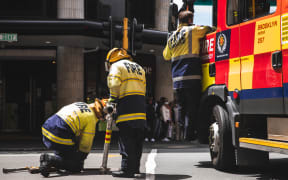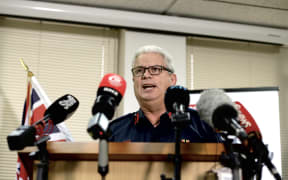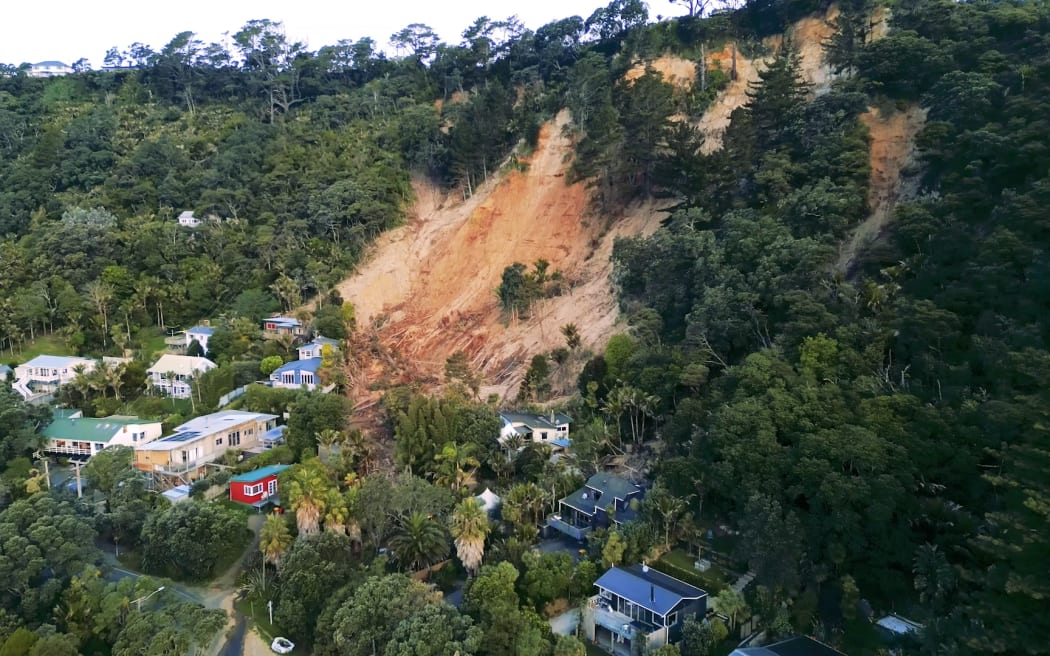
One of the land slips which prompted evacuations and red or yellow stickered homes at Muriwai on Auckland's west coast earlier this year. Photo: RNZ / Nick Monro
The only substantial document firefighters had about landslide risks prior to the fatal Muriwai slip in February was a 10-year-old manual from Sweden.
Fortunately, it was in English, not Swedish, but it had little to say about the hazard to firefighters.
Two volunteer firefighters died in a landslide during Cyclone Gabrielle in Muriwai in February.
Rescuers digging for them had to run to a safe area when another slip came down.
An investigation, released last month, found Fire and Emergency (FENZ) had not trained them about landslides, and should have trained them, and that career firefighters - other than the small number of Urban Search and Rescue crew - were in the same boat.
RNZ asked FENZ for a copy of all the information it had kept on the risks from landslides to its personnel since it was set up in 2017, till Muriwai.
It had the Swedish manual and three other documents: Two PowerPoints - from 2014 - consisting mostly of photos of slips here and worldwide, and a generic safety document updated in 2021 which does not mention landslides at all.
FENZ's 10-year plan in 2020 stated "severe weather events" due to climate change would be among the factors which would be "the impetus for us to adapt our ways of working to ensure we continue to keep our communities safe". The plan did not mention landslides or floods.
GNS Science reported landslides had killed 1800 people in the past 160 years, many more than earthquakes.
The national emergency agency recognises floods as New Zealand's number one hazard. Floods often cause slips.
A landslide database hosted by Auckland Council, set up several years ago "to save lives", calls landslides New Zealand's "forgotten natural hazard".
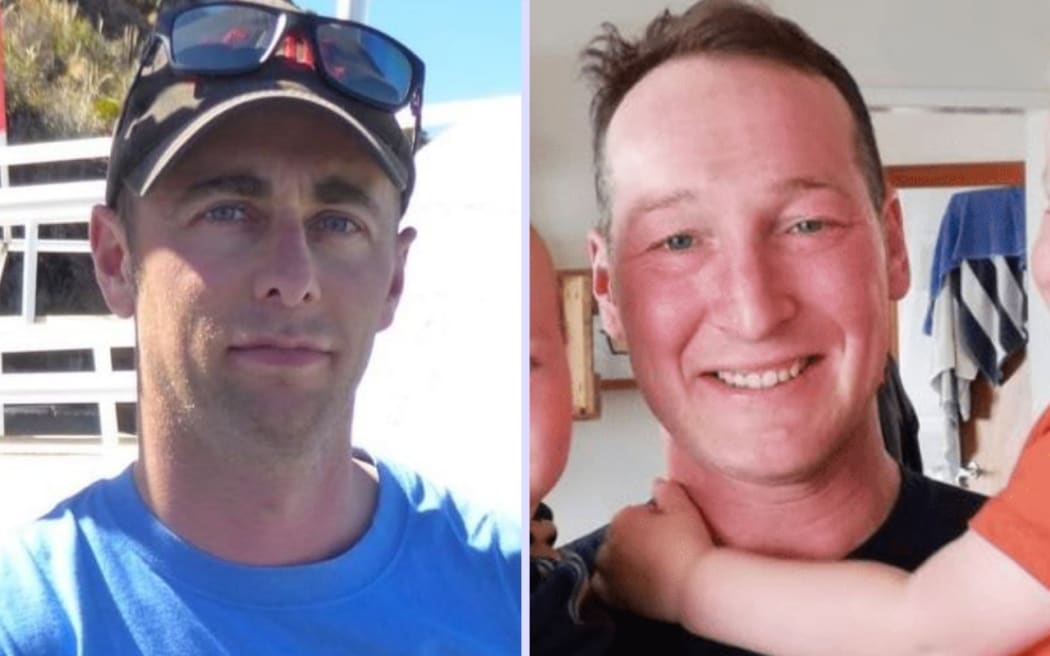
Firefighters Dave van Zwanenberg (left) and Craig Stevens, who died after getting trapped in a slip in Auckland's Muriwai during Cyclone Gabrielle in February, 2023. Photo: Supplied
FENZ was mandated six years ago as the country's first responder to deal with a much wider brief than just fires, in the 2017 law which changed its name from the old Fire Service.
"The Fire Service is a key component of our civil defence response," the 2017 debate in Parliament on the bill heard.
Yet, there is more information on Civil Defence websites about how the general public can spot signs of an imminent big landslide - such as small slips, titling trees, cracks, bulges - than there was in FENZ's systems prior to Muriwai, according to its OIA response.
"FENZ's risk management systems did not identify landslides as a hazard that could harm its firefighters," the investigation report on Muriwai said.
"This resulted in a lack of landslide-related procedures and training for firefighters."
The landslide database's compilers recognised the hazard. Geotech expert Ross Roberts, who had been counting landslide deaths worldwide since 2002, noted a doubling in 2019 compared to the year before, saying: "It has long been suggested that increased global temperatures will lead to higher rainfall intensities ... and there is strong evidence that this is occurring. Most of the landslides in July 2019 were triggered by short duration, high intensity rainstorms."
One of the two FENZ PowerPoints in the OIA, from GNS in 2014, warned "landslides are as deadly as earthquakes".
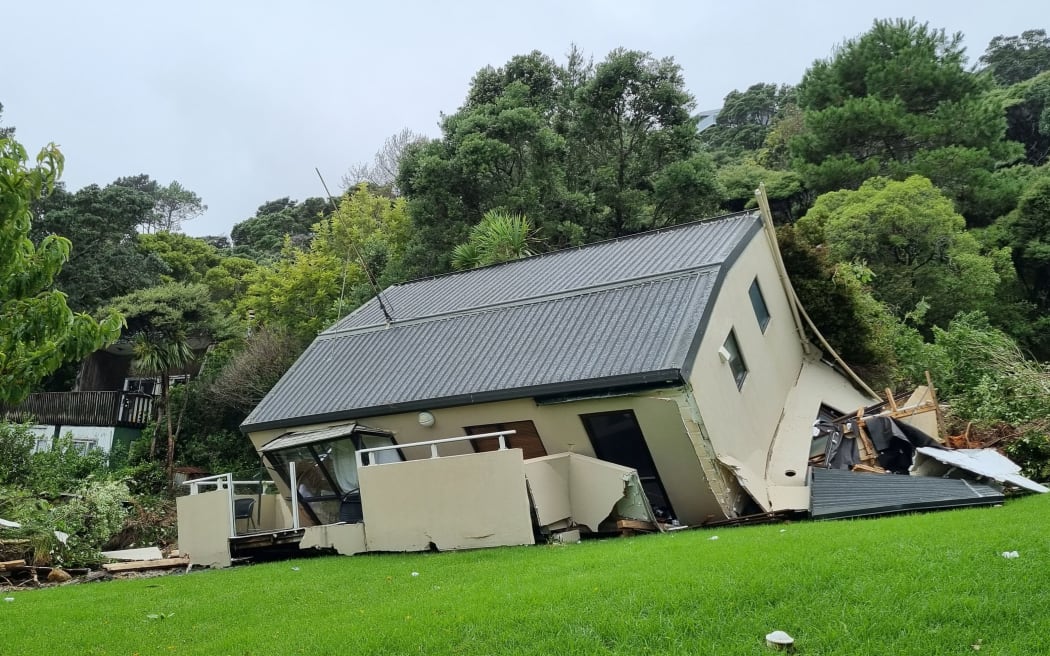
A house hit by a landslide in Muriwai in February, 2023. Photo: RNZ / Tom Taylor
A second Urban Search and Rescue (USAR) PowerPoint was also dated and meaningless about the threat to firefighters.
"They are so tied up in not being able to think outside the box," a senior firefighter said about FENZ commanders. (RNZ does not name firefighters who do not hold union positions, as many have claimed they might be penalised for speaking out).
"They don't teach you anything about applying [safety concepts] to landslides or trench collapses ... though FENZ is mandated to cover all those other things.
"The same about water rescues till two or three years ago. They are getting on to it now, but it's very, very, very slow."
FENZ told RNZ its Urban Search and Rescue engineers undertook landslide awareness training. There is a handful of them.
"All operational firefighters undertake training in hazard identification and risk mitigation," it added.
"The training consists of theoretical and practical application of the dynamic risk assessment process and the safe person concept."
The Muriwai investigation said the "dynamic risk assessment" and safe person concept "failed because the firefighters ... were unaware of the hazards and risks associated with landslides".
The "safe person concept", outlined in one of the four OIA documents FENZ sent to RNZ, is generic, and includes statements such as that firefighters "will take some risk to save saveable lives; may take some risk to save saveable property; will not take any risk at all to try and save lives or properties that are already lost."
The volunteer firefighters were digging a trench outside an unoccupied house when they were engulfed.
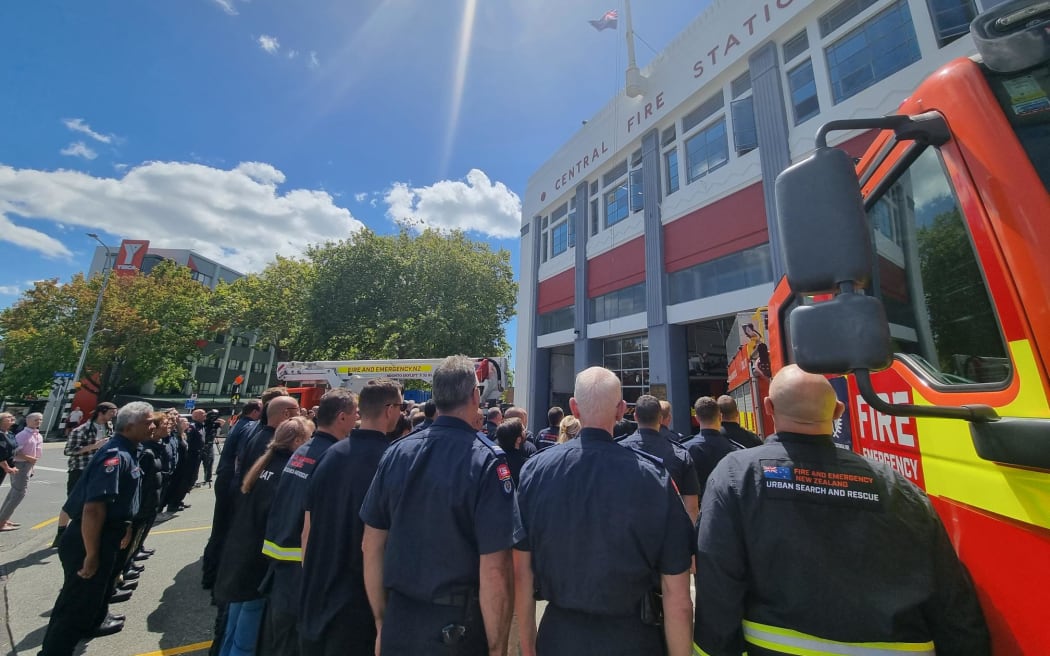
Auckland central fire station lowers flag in remembrance of Craig Stevens and Dave van Zwanenberg in February, 2023. Photo: RNZ / Felix Walton
FENZ said since the Muriwai incident, it was developing a training package on landslides as well as reviewing its approach to critical risk management.
It was increasing the national Urban Search and Rescue capability "by providing more training and equipment to districts and brigades in areas with greater potential for earthquakes and landslides".
A second senior firefighter labelled this "smoke and mirrors".
"No one in the country has had any training yet," they said.
"In the whole the country, there are probably only 10 guys proficient in training in landslides who have any operational experience."
Three years ago, FENZ's 10-year plan said "to address our changing operating environment, we will continue to build our capability and specialised expertise".
This week, it said it had also put out a national safety notice, in early May, with advice about landslides and subsidence.
It was a weak response, the second firefighter said.
The highly localised nature of the threat from landslides is a theme; the Muriwai investigation recommended FENZ consider including a "local landslide susceptibility risk profile" in fire station risk-planning activities.
Parliament was told in the debate on the 2017 law change that "we have very strong regional differences. That is why we are establishing in this bill a network of local committees".
By this year, the committee FENZ had set up covered less than 10 percent of the population.


